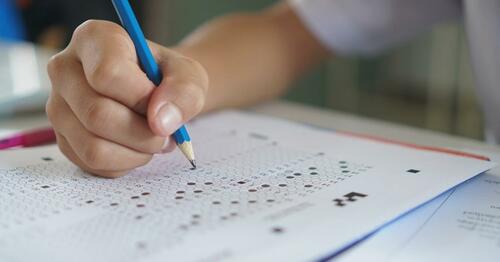Princeton Joins Move Back To Standardized Testing
Princeton University announced this week that it will be reinstating the requirement for undergraduate applicants to submit standardized test scores in the 2027–28 admissions cycle. It is only the latest reversal for an ill-conceived and poorly supported movement to achieve greater equity and diversity by eliminating standardized testing in higher education.
Years ago, I wrote columns on the move by many academics to eliminate standardized testing to achieve greater diversity in colleges and universities.
I have long been a critic of this movement given the overwhelming evidence that these tests allow an objective measure of academic merit and have great predictive value on the performance of students.
The University of California system was an early supporter of this ridiculous move.
Notably, academics in the California system came to the same conclusion as some of us who denounced the move. These tests not only have the most significant predictive value for performance but also play an important role in the advancement of minority students. University of California President Janet Napolitano, however, overrode those conclusions.
Napolitano responded to such criticism with a Standardized Testing Task Force in 2019.
Many people expected the task force to recommend the cessation of standardized testing.
The task force did find that 59 percent of high school graduates were Latino, African-American or Native American but only 37 percent were admitted as UC freshman students.
The Task Force did not find standardized testing to be unreliable or call for its abandonment, however.
Instead, its final report concluded that “At UC, test scores are currently better predictors of first-year GPA than high school grade point average (HSGPA), and about as good at predicting first-year retention, [University] GPA, and graduation.”
Not only that, it found: “Further, the amount of variance in student outcomes explained by test scores has increased since 2007 … Test scores are predictive for all demographic groups and disciplines … In fact, test scores are better predictors of success for students who are Underrepresented Minority Students (URMs), who are first generation, or whose families are low-income.” In other words, test scores remain the best indicator for continued performance in college.
That clearly was not the result Napolitano or some others wanted. So, she simply announced a cessation of the use of such scores in admissions. The system would go to a “test-blind” system until it developed its own test.
Ending standardized testing had an obvious secondary purpose in frustrating new legal challenges on the use of race in college admissions.
Last November, Californians rejected a resolution to restore affirmative action in college admissions.
MIT, Penn, Yale, Dartmouth, Brown, and other schools ultimately reverted to standardized testing. The fact that these schools even joined this movement shows how faculties and administrators jettisoned educational standards for popular causes.
While originally rationalized due to COVID, the move was widely heralded as a victory for equity and diversity. Notably, the policy outlasted COVID as many academics rejected standardized testing as racist. There have even been calls for random selection of students to achieve greater racial diversity.
In the case of Princeton, the faculty took years to give itself sufficient cover to return to standardized testing by studying the obvious. The announcement comes after a five-year review of data, showing that students who submitted test scores generally performed better academically at Princeton than those who did not.
Just as with earlier studies, a new working paper published on the National Bureau of Economic Research website finds that standardized test scores are stronger predictors of college performance than high school GPA, even after controlling for race, gender, and socioeconomic status.
GPA scores are notoriously unreliable due to grade inflation and varying standards across different schools. In San Francisco, “grading for equity” is a goal in public schools.
The slipping standards recently became evident when Harvard had to create a course to teach basic high school math to its students.
Columbia remains the last Ivy League holdout in dispensing with mandatory standardized testing.
Tyler Durden
Mon, 10/13/2025 – 15:45ZeroHedge NewsRead More





 R1
R1
 T1
T1


